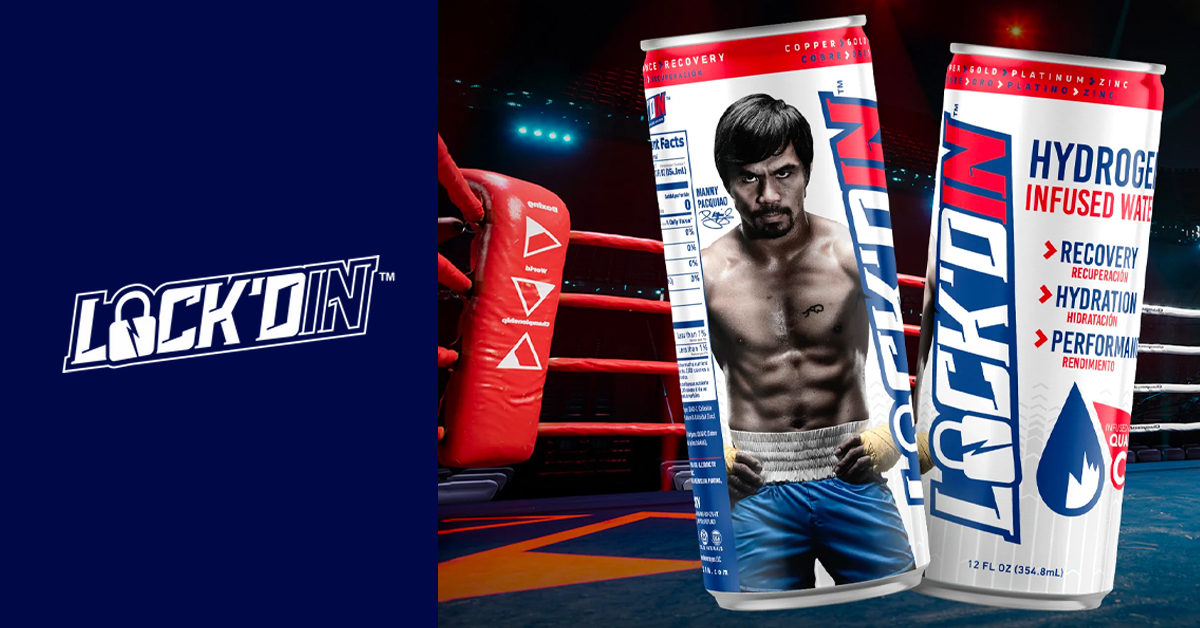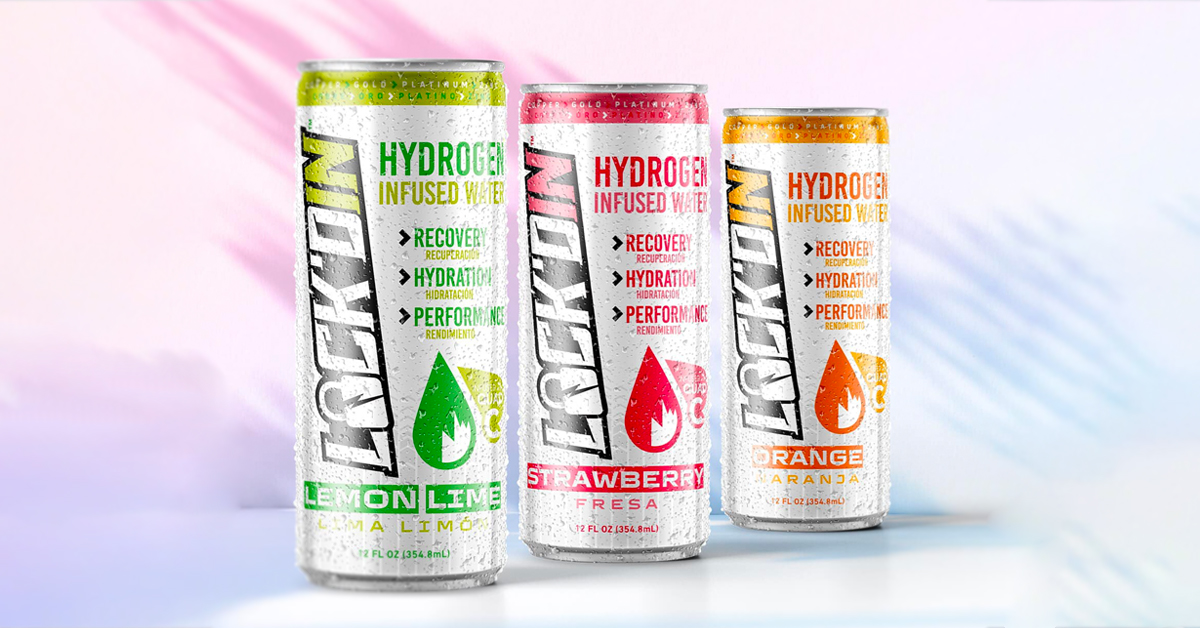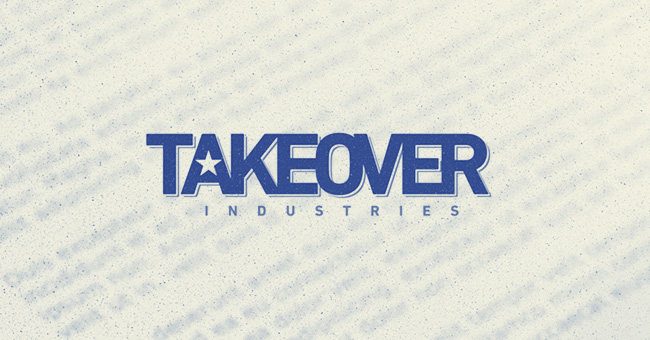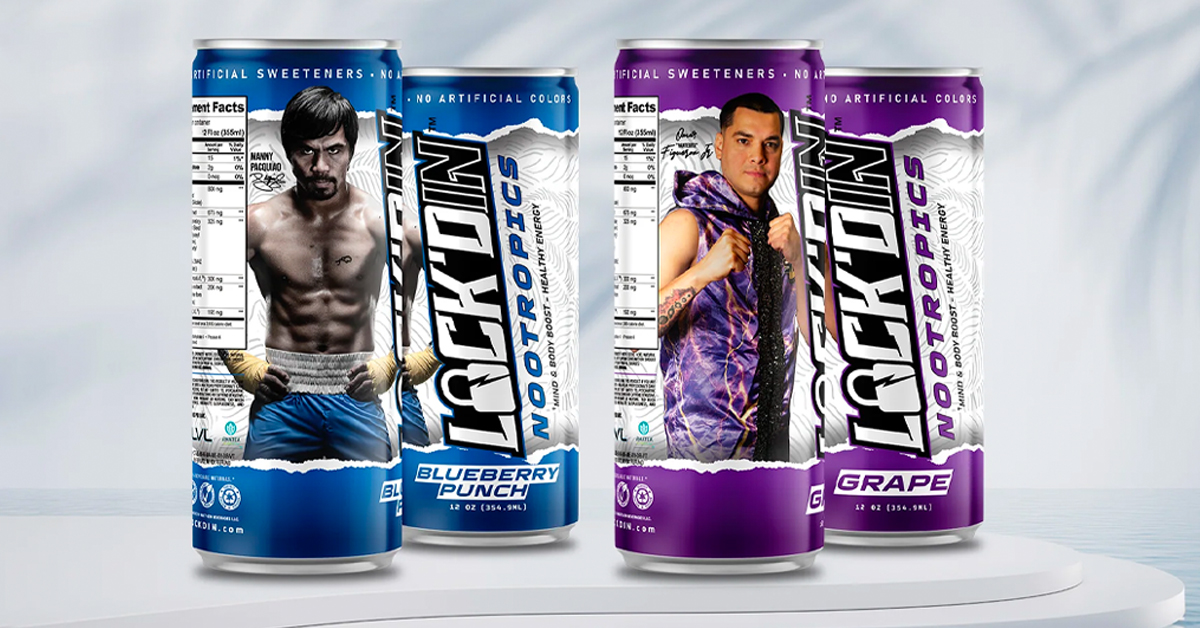Takeover Industries, the maker of the NXT LVL functional beverage brand that was supported by celebrities like retired pro boxer Manny Pacquiao and hip hop artist T-Pain, had been growing sales fast and was on pace to become a national player in retail. Right up until it wasn’t.
Over the past year Takeover, a subsidiary of a public penny stock company called Labor Smart, saw its sales collapse and deals fall apart amid a litany of unpaid bills, mismanaged financial records and lawsuits that resulted in a tangled web of infighting and fraud allegations between its founders, executives, investors and even “Pac Man” himself. If matters weren’t complicated enough, in the background of this corporate war, Labor Smart’s ability to trade on the OTC market was frozen due to missed filings with the SEC. The company was also undergoing a lengthy audit to correct its books.
In other words, at the beginning of 2023, Takeover and Labor Smart appeared by all accounts to be at death’s door.
But things look different now: there’s a new CEO, a largely volunteer team made up of shareholders, a rebranded and expanded product portfolio, its audit is complete, its relationship with Pacquiao restored – he’s set to become a board member – and at least some of the legal cases are closed. Seemingly against all odds, the company is aiming to get back on track through a new business entity dubbed Next Gen Beverage.
This new chapter is now officially up and running with a website and refreshed branding under the name Lock’d In. Borrowing visual cues from the original NXT LVL product, the reborn brand touts an expanded beverage portfolio that includes the flagship canned hydrogen water (once again adorned with Pacquiao’s image), flavored waters, nootropic drinks, bottled alkaline waters, and dry coffee K-Cups. The drinks are now available online direct-to-consumer.
But can the new leadership and the company’s apparent ‘Pax Pacquiao’ help to overcome its serpentine past, even with unsettled lawsuits and two of its original founders still aboard? The answer may lie with its new CEO, Tom Zarro.
Zarro, a logistics and supply chain industry veteran and a private investor in Labor Smart, stepped up as interim CEO of Takeover earlier this year with the goal of settling its myriad lawsuits and turning the sinking business around.
He is now working alongside two of Takeover’s original founders: Michael Holley, who oversees operations, and product development lead Joe Pavlik. Both of those founders were subjected to allegations of fraud and deception in multiple court filings since 2022, which they have both denied and which Zarro believes were a case of misplaced blame.
Meanwhile, Takeover’s third co-founder, and former CEO, Toby McBride has exited the business.
The parent company, Labor Smart, which is now controlled by Zarro and Holley, has established two new subsidiaries: Next Gen Holdings, LLC, which was incorporated in Wyoming in May, and operating company Next Gen Beverage.
While Takeover still exists, Zarro said the Lock’d In brand is hoping to break away from what he called “a very toxic, dead company” by working through Next Gen Beverage. Labor Smart is continuing an effort to spin out Takeover Industries so shareholders can receive potential payouts from the business: “Any spinout of a subsidiary protects the shareholders, and that is our duty and responsibility,” Zarro said.
In Zarro’s words, Takeover was “left for dead.” After entering the business’ day-to-day operations, the company lost the rights to use the NXT LVL brand name amid its legal turmoil and the business had no access to its online ecommerce stores or most of its old social media accounts (and their followings).
“All the things that brought value to the original company were no longer available to us for one reason or another,” he said.
Meeting The New CEO
Zarro said he can’t recall the exact date he got involved in Labor Smart, although he believes it was around 2015, give or take a year. The earliest record found online of Zarro’s involvement with Labor Smart is a transcript in the SEC’s files from a December 2015 shareholders call in which he participated. He has since gone on to invest in Metavesco, another company started by Labor Smart’s original founder and former CEO, Ryan Schadel.
At that time, Labor Smart was a staffing services provider specializing in placing temp workers in blue collar jobs. By 2016, however, Labor Smart had largely gone quiet, filing a termination of registration with the SEC in June of that year. Its share value stayed at the nigh-bottomed out price of $0.0001 until spring 2021, when Takeover came into the picture.
Takeover Industries and the NXT LVL brand was founded in January 2021 by Holley, Pavlik and Toby McBride. McBride and Holley had previously worked together at brands like AriZona, Xyience and Dan Bilzerian’s Ignite International, as well as their own past venture, High Performance Beverage Company, another OTC traded brand that endured lawsuits from shareholders.
Within two months of its launch, Takeover was acquired in a reverse merger by Labor Smart, bringing the nascent brand public under the LTNC ticker symbol and transforming a stagnant temp agency into the owner of a disruption-minded functional beverage company.
That spring, the company hired Jason Tucker, founder and director of intellectual property management company Battleship Stance, first as a consultant and later full time as president, granting him a Labor Smart board seat.
Zarro said he had been holding his LTNC stock during those dormant years and he followed the Takeover merger closely as a shareholder. He got more directly involved after the merger when he provided the company with a convertible note bridge loan. The loan came with “extremely favorable terms,” he said; no payments were required for the first six months, followed by 8% due and subsequent payments over the course of a year.
However, Zarro’s flags went up when the company became delinquent with him, prompting him to get directly involved. What he found was a business in turmoil, some of which is still rolling about.
A Brief Overview of Takeover Industries
Last year, Takeover Industries became embroiled in multiple lawsuits, which BevNET covered at length in a February feature. In short, the cases – two of which are still ongoing – levied allegations of fraudulent activity believed to have been committed by the three co-founders, including misleading investors and improper use of company funds.
Some of those cases have been resolved and Zarro has rebuilt working relationships with several former legal adversaries. But still hanging over the company is a lawsuit demanding repayment of a $2 million loan from shareholder James Deppoleto, Jr. Meanwhile, the company is still suing its former president in a thorny case that involves numerous back-and-forth allegations.
Even the company’s deal to end the case with the Pacquiao Foundation and other investors is reliant on smoothing out some of the other legal matters. While the boxer agreed to a $200,000 settlement and a board seat at Next Gen, the company said it will do all it can to clear up outstanding cases, including the big note owned by Deppoleto.
The case with Jason Tucker is also ongoing, and that particular lawsuit has a complex history all its own.
In early 2022, Takeover sued Holley; the court complaint – signed by Tucker – alleged Holley had authorized over $750,000 in unapproved transactions from Takeover’s accounts, among other accusations of self-enrichment. Holley denied the allegations against him in court and filed counterclaims against Tucker and his wife, arguing that Tucker had sold shares of LTNC and failed to turn the payments over to the company, as well as claims against McBride and Pavlik.
Additional filings in the case later accused McBride of abusing expense reports and spending over $243,000 in company funds on personal expenses, including large purchases made at the NBA store in Manhattan, the New York Yankees team store, and numerous other locations.
Speaking to BevNET last week, Holley referred to the complaint as a “fabrication” that detailed “things that never happened.”
After Holley and Pavlik reclaimed control of the company last fall, Takeover moved to dismiss the charges against Holley in March, shortly after Zarro became interim CEO.
In May, the court agreed to a reorganization of the lawsuit, dropping Takeover’s claims against Holley as well as the counterclaims made by Holley against McBride and Pavlik. The case was also updated to position Labor Smart (not Takeover) as plaintiff against the Tuckers, which is now the last remaining part of the case.
Zarro said that the company is still hoping to settle the lawsuit and has made “extraordinary attempts to resolve” it, but he alleged that Tucker has not been communicative.
Tucker could not be reached for comment by BevNET.
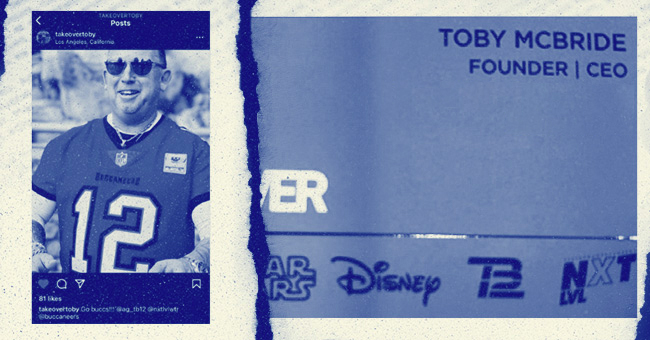
Another lawsuit, filed against the founders in January by a group of investors, has been resolved. The four plaintiffs – which included the Manny Pacquiao Foundation’s executive director Jon Sisson, a man named Luis Sequeira and two others – had alleged that the founders misled them into believing Takeover had partnerships with The Walt Disney Company and certain “G.O.A.T.” athletes, namely Tom Brady, that did not actually exist. The filing claimed that McBride and Pavlik had lied in person and on social media about these fake deals.
That complaint was voluntarily dismissed in February and a settlement agreement was reached after discussions between the investors and Zarro. Since then, many of the investors have publicly realigned themselves with the company, praising Zarro on social media and becoming more directly involved in the brand.
According to the settlement agreement – which was submitted by Tucker as part of a motion in his case with Labor Smart – Pavlik, McBride and Holley all agreed to step down from their c-suite officer level positions for new titles and McBride agreed to resign from the board of directors for both companies. In turn, Zarro, Sequeira and Pacquiao will be added to the boards of Labor Smart and Takeover, serving alongside Holley, pending approval. Sisson will be named to a marketing advisory board seat.
Manny Pacquiao also received 400 million shares in the company, absolution from responsibility for past debts, and $200,000 cash.
Zarro said an annual shareholders meeting is scheduled for October when a new board will be voted on and installed. Sequeira and Pacquiao have both agreed to join the board, he said, and the company is complying with Wyoming state law to officially appoint them.
The company is now working to close out the lawsuit brought by Deppoleto. That case stems from an incident that occurred in November while McBride was on a 60-day unpaid leave related to his expense reports. Deppoleto claims that Holley and Pavlik (the latter acting against advice of counsel as he was still a co-defendant in Holley’s countersuit at the time) called an emergency board meeting, firing Tucker and another executive, and reinstating McBride. After learning of the action, Deppoleto said he called in his $2 million loan, which has not been repaid.
The settlement agreement from the investors case states that the company is authorized to negotiate a settlement with Deppoleto using preferred shares, royalty payments and a board seat as just some of the possible approved offerings.
On July 20, a judge denied Deppoleto’s emergency motion for partial summary judgment, ruling that Takeover has been able to present competent evidence for its defense “showing a genuine issue of material fact” that should be considered.
Zarro said he was optimistic about reaching an agreement with Deppoleto and said the company hopes to reach a settlement rather than take the case to trial.
“We are doing all we can to settle with Tucker and Deppoleto,” Zarro said in a followup email. “Regarding Deppoleto, we are having very cordial conversations with the attorneys, but we are having trouble meeting his demands. Next Gen does not owe these debts, Takeover does and … we are doing all we can to save it.”
Zarro said the company has put forward what he considers a “very generous offer” for Deppoleto to consider.
From NXT LVL to Next Gen
While the court matters march on, the company still needs to build a brand. Until now, much of Next Gen’s day-to-day team has consisted of volunteer shareholders who are aiding the business – one even came up with the new brand name, Lock’d In – as well as a paid operations role and a new CFO.
To the good, Lock’d In has secured new celebrity partnerships, signing with Texas-born pro boxers Brandon Lee Figueroa and Omar Figueroa, as well as their fitness influencer sister Omayra Figueroa, as part of a strategy to develop the brand around smaller regional communities using hometown hero ambassadors, as opposed to instantly aiming for a national retail rollout like the NXT LVL brand did in the past.
Zarro said the company intends to focus on D2C in the immediate future, noting it can save on slotting fees and other expenses as it works to regrow the business. But once it is again ready for retail rollout, it will employ that hyper-focused regional strategy.
Labor Smart has also completed its long awaited 2021 audit, a pivotal step to resuming the company’s pink current status to trade on the OTC. Zarro said the audit took more than a year to complete simply because it wasn’t being worked on.
The company views the completion of the audit as a triumph that “many thought was impossible,” however, the findings nevertheless found substantial doubt about the company’s ability to continue as a going concern.
Holley suggested that the warning was commonplace for companies that aren’t cash flow positive or profitable and Zarro said they are anticipating a similar result with the upcoming completion of Labor Smart’s 2022 audit, as the business spent heavy amounts on legal fees and marketing.
Zarro said that 2023’s results will show a slower sales pace with “very reduced overhead” and he is anticipating the business will be profitable by Q2 2024 – so long as it can conquer its final hurdles: completing last year’s audit, getting in front of the SEC and resuming trading.
“We’re going back to what we did at the beginning,” Zarro said. “We had no expenses, no attorneys, no extraordinary marketing expenses and we were very, very profitable. So we’re going back to that. Unfortunately, we’re starting from less than zero with all the legacy issues that were handed off to us. But as we solve and settle those, I anticipate we’re going to be profitable absolutely by Q2 2024.”
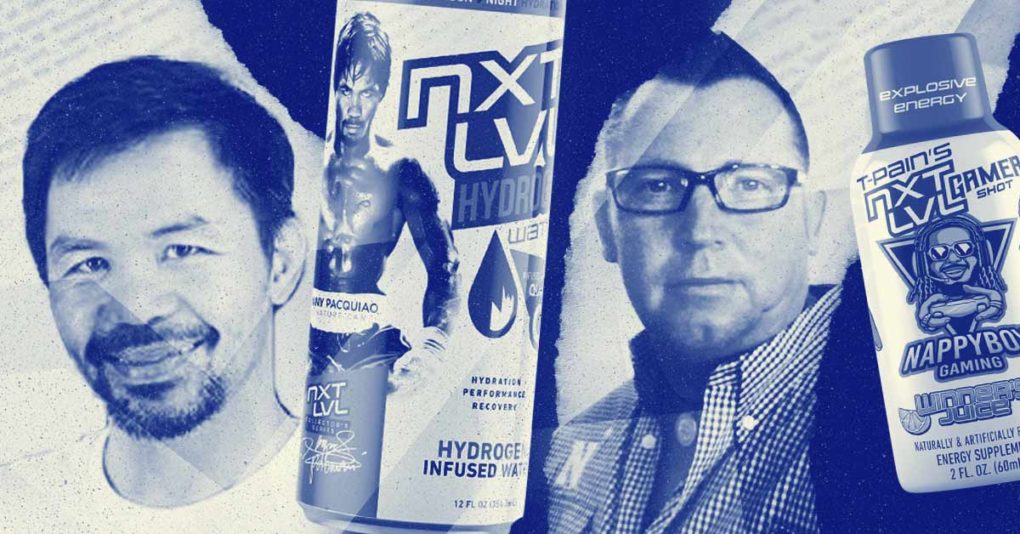
Settling Matters
Toby McBride is no longer involved in Labor Smart or its subsidiaries in any form. Zarro acquired McBride’s preferred shares and the co-founder sold back 300 million shares of his remaining common stock to the company. According to Zarro, McBride also recently sold his remaining common shares to another shareholder, leaving him entirely disconnected from the business.
“Toby is an entrepreneur at heart,” Zarro said. “He’s a trailblazer. And as our company began to grow and take on structure and processes, I think he felt it would be a better fit for him to go help another company in a startup situation. So we came together mutually and agreed that that would probably be best for all parties.”
Pavlik also sought to clarify that the founders’ relationship with McBride is strong, calling him a “friend and an ally,” instead placing blame for the company’s woes on a different business partner that “turned out to be extremely toxic, extremely deceitful” – i.e. Tucker.
In February, Tucker told BevNET in a statement that he believed the brand’s strong performance during his tenure as president spoke for itself and that he feels his actions against Holley and McBride were warranted: “When the evidence appeared to point at certain individuals, I was ousted,” he wrote.
Zarro said he believes that Holley and Pavlik were unfairly vilified by the lawsuits and suggested the founders were kept in the dark about the mismanagement of the company.
“I got to know these guys and they are extraordinary people,” Zarro said. “They’re very capable businessmen, but they were totally isolated, handcuffed and shut out of the existing company.”
